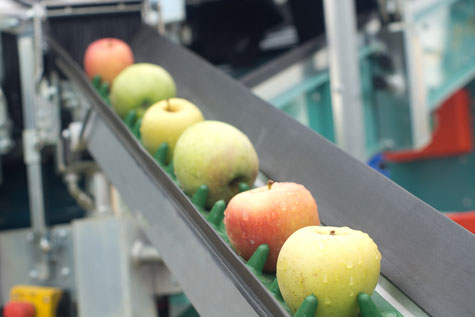Growers can Improve Processes and Compliance with CanadaGAP
When the CanadaGAP certification program first became available in 2008, no one realized that program uptake would expand so rapidly: as of last year, there were 3,000 companies enrolled in the program nation-wide, with a 14% increase in participants logged in 2015 alone. Designed as a food safety program for companies that produce, handle and broker fruits and vegetables, CanadaGAP helps businesses implement and maintain effective food safety procedures. This encompasses everything from the application of agricultural chemicals to the training and monitoring of employee hygiene.
At first, the majority of program participants in CanadaGAP were potato growers supplying product to processors such as McCain Foods, Simplot, Lamb-Weston and Cavendish. The processors were themselves responding to demands from their own customers, including restaurant chains such as McDonalds, Burger King, and others, who were seeking assurances that products had been sourced from farms that followed Good Agricultural Practices.

CanadaGAP has always taken pride in the fact that it is a national, auditable food safety standard for Canadian fresh produce suppliers; once it was benchmarked to Global Food Safety Initiative (GFSI) requirements in 2010, it was endorsed by major retail customers, such as Loblaw Companies, Walmart, Sobeys and Metro, as well as many buyers outside Canada.
CanadaGAP is currently GFSI-recognized for certification options B, C and D. These options entail an annual on-site audit of an operation’s activities, from harvesting and storage, to packing, repacking, wholesaling or brokerage.
As with other certification programs, Canada GAP certification provides a business-to-business assurance that product is being grown and handled in a way that manages the risks inherent to fresh produce, and that minimizes potential contamination throughout the supply chain. It is accepted domestically and internationally, and supports the GFSI vision of “once certified, accepted everywhere.”
Key to the CanadaGAP® program are two free downloadable manuals, one specific to greenhouse operations, the second for other fruit and vegetable operations. These manuals were developed by the horticultural industry and reviewed for technical soundness by Canadian government officials.
The manuals are designed to help:
• companies implementing Good Agricultural Practices (GAPs) with their production, packing and storage operations
• repackers and wholesalers in the implementation of Good Manufacturing Practices (GMPs) and HACCP programs
• fresh produce brokers with the implementation of best practices in supplier management and product traceability.
The manuals and other materials are available as free downloads from the CanadaGAP website (www.canadagap.ca) on the theory that broad availability of these materials helps to promote safe production of fresh produce, regardless of whether a company ultimately decides to become certified.
Many companies are realizing the benefits of being certified to a home-grown, world-class food safety program. It not only increases the level of food safety possible on a national scope, but it also tends to translate into dramatic financial success that was not previously possible for participating business owners.
In the drive to make food safe for all, this truly is the best of all possible outcomes
About the Author:
Heather Gale is the Executive Director for the CanadaGAP program. CanadaGAP was first benchmarked to GFSI in 2010, and is currently GFSI-recognized for certification options B, C and D. Read more about CanadaGAP at www.canadagap.ca




